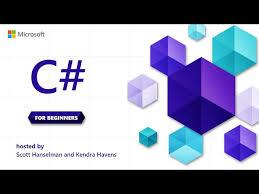Understanding Boxing and Unboxing in C#

Mastering C#: Unveiling The Secrets Behind Collections, DTOs, Boxing and Unboxing, Async vs Await & Lambda Expressions
DTOs minimize the network overhead typical of multiple calls.
2. **Decoupling**: DTOs decouple data from business logic, promoting cleaner code architecture and separation of concerns.
3. **Easier to Version**: DTOs can be easily modified or versioned without impacting the entire system.
In practice, DTOs simplify data management from one layer of an application to another, ensuring seamless transfers between clients and servers.
3. Boxing and Unboxing in C#
Boxing and unboxing are fundamental concepts in C#, particularly when dealing with value types and reference types.
- **Boxing**: This is the process of converting a value type (like an integer or a struct) into a reference type (an object). During this process, the value is wrapped inside an object and stored on the heap.
- **Unboxing**: This refers to the reverse process, where the reference type is converted back into a value type. It involves explicitly casting the object back to its original type.
Key Points to Remember:
1. Boxing incurs a performance overhead since it involves additional memory allocation.
2. Unboxing requires type checking, and failing to cast an object to its original type can lead to exceptions.
Developers should be aware of boxing and unboxing to avoid performance pitfalls, especially in performance-critical applications.
4. Async vs Await in C#
With the need for responsive applications, asynchronous programming has become a standard practice. C# introduces the `async` and `await` keywords, which simplify asynchronous programming.
Key Aspects of Async and Await:
- **Async**: When a method is marked with the `async` keyword, it allows for asynchronous operations within its body, enabling non-blocking calls to be made.
- **Await**: The `await` keyword is used to pause the execution of the asynchronous method until the awaited task is completed, allowing the main thread to remain responsive.
Benefits of Asynchronous Programming:
1. **Improved Performance**: Long-running operations do not block the main thread, enhancing application responsiveness.
2. **Simplified Code**: The `async` and `await` model allows for more straightforward code compared to traditional asynchronous patterns, such as callbacks.
By leveraging these keywords effectively, developers can create high-performance applications that remain responsive and efficient.
5. Lambda Expressions in C#
Lambda expressions provide a concise way to express anonymous methods in C#. They are particularly useful in LINQ queries and for defining inline functions.
Syntax of Lambda Expressions:
The syntax of a lambda expression is defined as follows:
```csharp
(parameters) => expression or statement block
```
Advantages of Using Lambda Expressions:
1. **Conciseness**: They allow developers to write less boilerplate code, making functions easier to understand.
2. **Enhanced Readability**: The intent of the code is clearer, especially when used with LINQ to filter or project data.
3. **Higher-Order Functions**: Lambda expressions can be passed as arguments, making them suitable for functional programming patterns.
Incorporating lambda expressions in C# can lead to more elegant and expressive code, enhancing the overall development experience.
Conclusion
Mastering C# involves understanding several key concepts that form the backbone of effective programming within the language. From utilizing collections for data management to implementing DTOs for efficient data transfers, and employing async/await for responsive applications—these elements are vital to modern software development. Furthermore, grasping the intricacies of boxing, unboxing, and lambda expressions can significantly optimize code performance and readability.
As you advance your skills in C#, take the time to explore these features deeply. They not only enhance your coding prowess but also equip you with the tools needed to tackle complex programming challenges. Embracing the full capabilities of C# will position you as a proficient developer capable of creating robust, efficient, and scalable applications. Mast pairs, especially when dealing with data transfer between different layers or systems, DTOs play a crucial role. A Data Transfer Object (DTO) is a simple object that encapsulates data without any business logic. Its primary purpose is to carry data between processes, which significantly improves performance by reducing the number of method calls.
Benefits of Using DTOs:
1. **Reduced Network Calls**: By aggregating data into a single object, allowing for fast lookups by keys.
- **HashSet<T>**: An unordered collection of unique elements, making it ideal for scenarios where duplicates are not required.
- **Queue<T>**: Represents a first-in, first-out (FIFO) collection of objects.
These collections allow developers to store and manipulate data efficiently, adapting to various scenarios based on their performance needs and data characteristics.
## 2. Data Transfer Objects (DTOs)
In applicationering C#: Unveiling The Secrets Behin types of collections, and each serves a specific purpose:
- **Array**: A fixed-size collection of elements of the same type.
- **List<T>**: A dynamic array capable of resizing itself automatically, allowing for easy addition and removal of elements.
- **Dictionary<TKey, TValue>**: A collection of keyd Collections, DTOs, Boxing and Unboxing, Async vs Await & Lambda Expressions
In the realm of modern software development, C# stands as one of the preferred programming languages due to its versatility and robust features. As developers dive deeper into C#, they encounter several key concepts that significantly enhance productivity and code management. In this article, we will explore essential aspects of C# programming, including Collections, Data Transfer Objects (DTOs), boxing and unboxing, async and await, and lambda expressions. Understanding these concepts not only improves resource management but also enriches the overall development experience in C#.
Understanding Collections in C#
Collections in C# provide powerful data structures that help manage groups of related objects. They are essential for effective data handling and manipulation. C# offers various
-value
development
,
Company Name - CsharpMaster
City - Jaipur
State - Rajasthan
Country - India
Email - mailto:support@csharpmaster.com
visit us : -https://csharpmaster.com/

- Art
- Causes
- Crafts
- Dance
- Drinks
- Film
- Fitness
- Food
- Jeux
- Gardening
- Health
- Domicile
- Literature
- Music
- Networking
- Autre
- Party
- Religion
- Shopping
- Sports
- Theater
- Wellness


